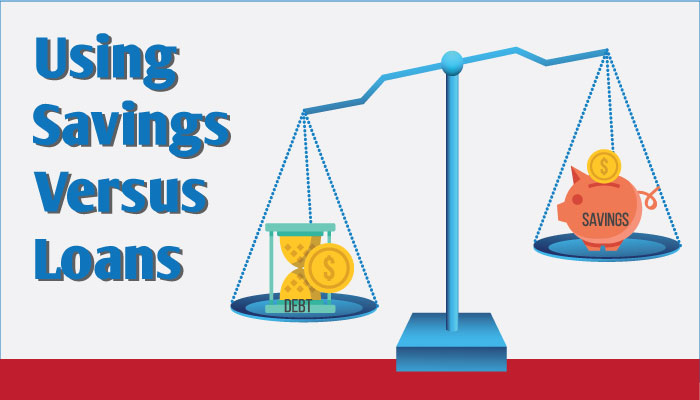A question that we are asked quite often
In response, we always ask, why do you oppose these two categories of personal finance? Our position as financial consultants is that you should never stop saving.
Dealing with borrowed funds is a great art and in fact there are three approaches to it:
- The embezzlers. Take loans and credit cards and spend them on impulsive purchases and what you cannot afford yet.
- Do not take loans at all. To be afraid of them like fire, to pay off debts immediately after taking. This approach also has a right to exist, but has nothing to do with the high art of personal finance management.
- Earn on borrowed funds. It is the supreme art of personal finance management. And this is, in fact, entrepreneurship and investment. You need to grow to this level.

The mistake of people who find themselves on the first level is the “embezzlers” – they think that by taking borrowed money they win both money and time. They assume that they can behave like people in 3rd level. In fact, they all lose. They are trying to invest borrowed money in some unreliable source such as a pyramid scheme or, even worse, MLM, which only hide behind imaginary promises of income. It is possible to make money on borrowed funds in the right way only in business and in serious investments.
In our country, a qualified investor is a person who either has experience and education in the field of investment, or 6 million rubles. Since if a person manages to keep such a sum near him (and this is not a great-grandmother’s apartment), then he will have enough knowledge and experience so as not to lose it, or at least not plunge into the purchase of unreliable financial assets like a whirlpool.
Therefore, at any level, the question of saving or taking on credit should not be. But even if you find yourself in a credit hole, you should not stop saving. Many are in a hurry to get rid of debt as soon as possible (to get to the 2nd level of interaction with borrowed money), but at our school we do not see any advantages from such a state, especially if you give more than 50% of your income for loans. You already have a loan and it will not go anywhere yet. If you put all of your money into early repayment, you may not have enough money for food, drugs, and basic needs. If you only have debts and nothing else, we are for this approach:
- Put aside the financial cushion.
- Set aside the insurance fund.
- And only after that, part of the amount should be sent for early repayment, and this is provided that you have not paid most of the interest yet.
The main conclusion here is that you must save in any situation. If you are really strangled by loans and you give up to 90% of your income for loans and you do not have money left for basic needs such as health and quality food, you should negotiate with another bank to refinance.
Refinancing is when another bank buys your debt from a competitor (your bank) with a decrease in the monthly payment for you, usually by increasing the term. Or if this is not possible, then you can agree with your bank on restructuring.
It negatively affects your credit bureau information and your rating, and this is an extreme method, in fact.
If you spend less than 50% of your income on loan payments, you can safely start saving using the system we showed above.
Regarding postponement, people often come to us with the question: “it is clear that we need to postpone, you better tell me how to start and how not to leave this path?”. So we have the answer to this question.
We have created a financial Game “Money is Easy!” which is a financial simulator. Here we demonstrate the technique, and in our closed financial club, where our students go after the Game, we, with the help of special educational technologies, help to train this technique of saving and postponing.
